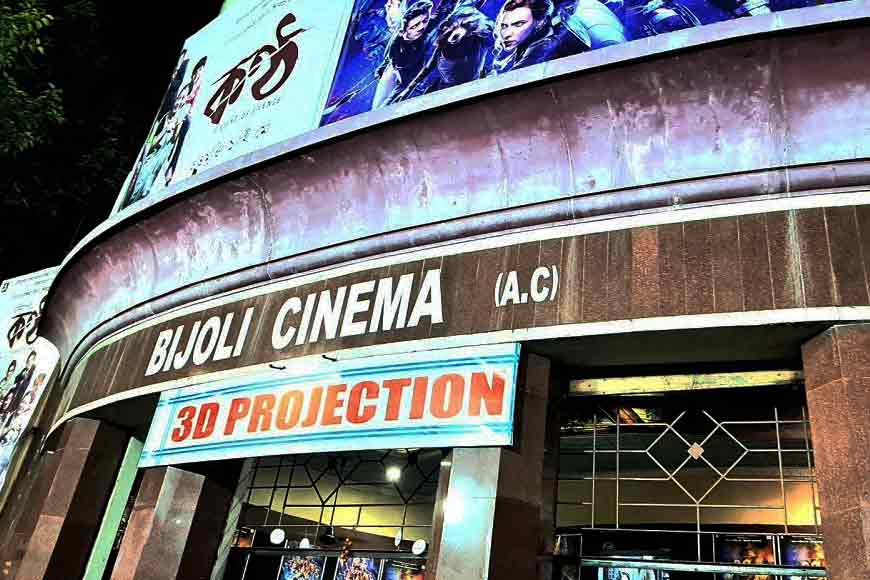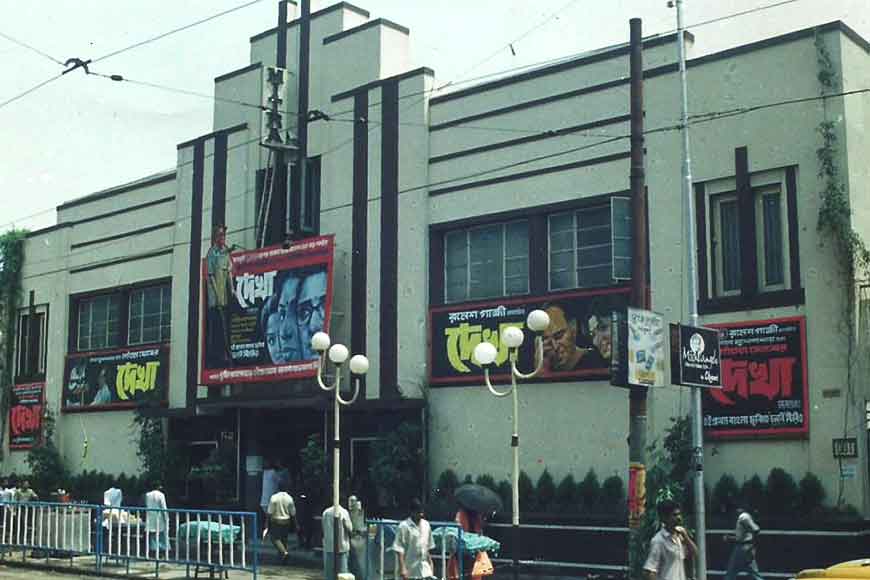Will single-screen halls become a slice of nostalgia?

This is the first of a two-part piece on how standalone movie theatres are fading from our lives, interspersed with insights from theatre owners and personal anecdotes by the writer.
No Presents Please is a collection of short stories by the Kannada writer Jayant Kaikini. The book won the DSC Prize for Literature a couple of years back. All the short stories in the collection are a throwback to the two decades the author spent in Mumbai. One of the stories, Opera House, is about a theatre about to down its curtains for good, and a sweeper’s sense of local geography illuminates the charms of an increasingly side-lined urban history. “Indranil wove his small world around the Opera House theatre. The night streets, the local trains, the colourful curtains of the rooms of the naachwalis that one could see from Kennedy Bridge, the Anantashram rice-and-fish plate, the round aluminium boxes containing the film reels – these were the small strands of his web.”
The story goes on to describe how the filmstars on the various cinema posters begin a conversation with each other and also shed light on the hawkers who sold their wares, the ice-cream vendors who had no clue about how they would live from the next morning. This story is based in Mumbai, but is the same in most metros of the country. This is a pre-pandemic trend which has just escalated tremendously over the pandemic and the constant lockdowns leading to more closures of single screen theatres.
Soon after the state government declared single and multiplex screens open with 50 per cent capacity to sustain social distancing, I went to watch Chehre at Bijoli theatre, close to where I live. This film, alongside the Bengali film Mukhosh, were the two films being screened at the theatre right now. We had two balcony seats with one empty seat between us to maintain social distancing. But I counted not more than ten people, including us two, on the balcony, while the dress circle remained empty. The young usher guided us to two seats right under the ceiling fan because the air-conditioning was off. “How can the theatre provide it, tell me?” he asked, not waiting for an answer. He happened to be the only usher in the theatre and two stood at the gates to check our tickets and allow us in.
Gone are the smiling chips sellers and the men hawking tea, coffee, ice-cream and popcorn during the interval. They usually came up from the streets below as there is no food stall in Bijoli. The hawkers have disappeared and the pavement outside has been fenced with iron grilling. The viewing was free of the ambient sounds of chips and popcorn being munched by the viewers, a usual fare in an earlier period. No cell phones rang which used to be a usually disturbing fare earlier on.
But times have indeed changed which has also stripped us from a slice of our culture.

"The situation is not very encouraging at this juncture. We can't run the show with such low audience count. Electricity charges and recurring establishment charges have to be paid. We have to wait till the situation improves... cannot specify a time frame," Arijit Dutta, the owner of Priya Cinema, which has just opened its ticketing counters and begun to screen films after the recent announcement. But he is not certain about whether he will be able to pay his staff if there is a third wave and the situation does not improve and the footfalls do not increase.
When we were children, cinema-going was an entertainment, an adventure and a looked-forward-to outing when we would begin dressing up, picking and choosing from our limited wardrobe and set out at least an hour before show-time. During the interval, we would nudge our mothers and aunts to buy potato chips for us as children in my time did not get any pocket money. That entire culture has disappeared completely, no thanks to the globalization and modernisation of entertainment that brought in the culture of shopping malls with multiplex theatres charging the earth for both tickets and eats. This did not quite stop the audience from visiting multiplex screens but they certainly cut down to cinema-viewing because of the expenses involved and fell back on the many satellite channels followed by so many OTT platforms for those who could afford mobiles and tablets and computers with relevant connections.
Most of the old single screen theatres have a cultural history of its own. One anecdote concerns the last Birendra Sircar, founder of New Theatres. He was a civil engineer who studied in England. One day, he was driving by on the main road when he saw a serpentine queue leading to this very same cinema hall. He got off the car to investigate and was told that a cinema was playing inside the theatre and that people had queued up to buy tickets. He was stunned and this gave him the idea of beginning a career through cinema. And thus was born New Theatres.

Sadly however, Ujjala – the institution, witness to landmark developments in cinema in the city – is no more, having been replaced with a glitzy and smashing new building owned and run by a famous beautician and hairstylist. But a brand of chanachur (a famous Bengali savoury mixture) continues to be sold from a shop in the corner, which became famous as Ujjalar Chanachur – a unique brand name derived from its location next to the theatre.

Dipendra Krishna Mitra who closed down Mitra Cinema founded by his ancestral family around 90 years ago, recounted that Netaji Subhas Chandra Bose personally attended the opening of this theatre and since Bose refused security provided by the British Government, two notorious toughs of the neighbourhood named Rajjak and Jamal were entrusted with his security! Mitra broke into tears at the television interview where he said that he was closing down the theatre, which has a history of its own because of his own ageing issues and failing health.
“I renovated and restructured the hall because I really wanted to keep it going. But it did not work and since I am a bachelor, I have no heir to look after this business. I am closing it down especially for my employees so that I can clear their dues and set them free to look for other jobs,” he said. The projectors lie around, like discarded machines and he even offered to sell me a projector at a throwaway price if I was willing to buy it!
To be continued...










